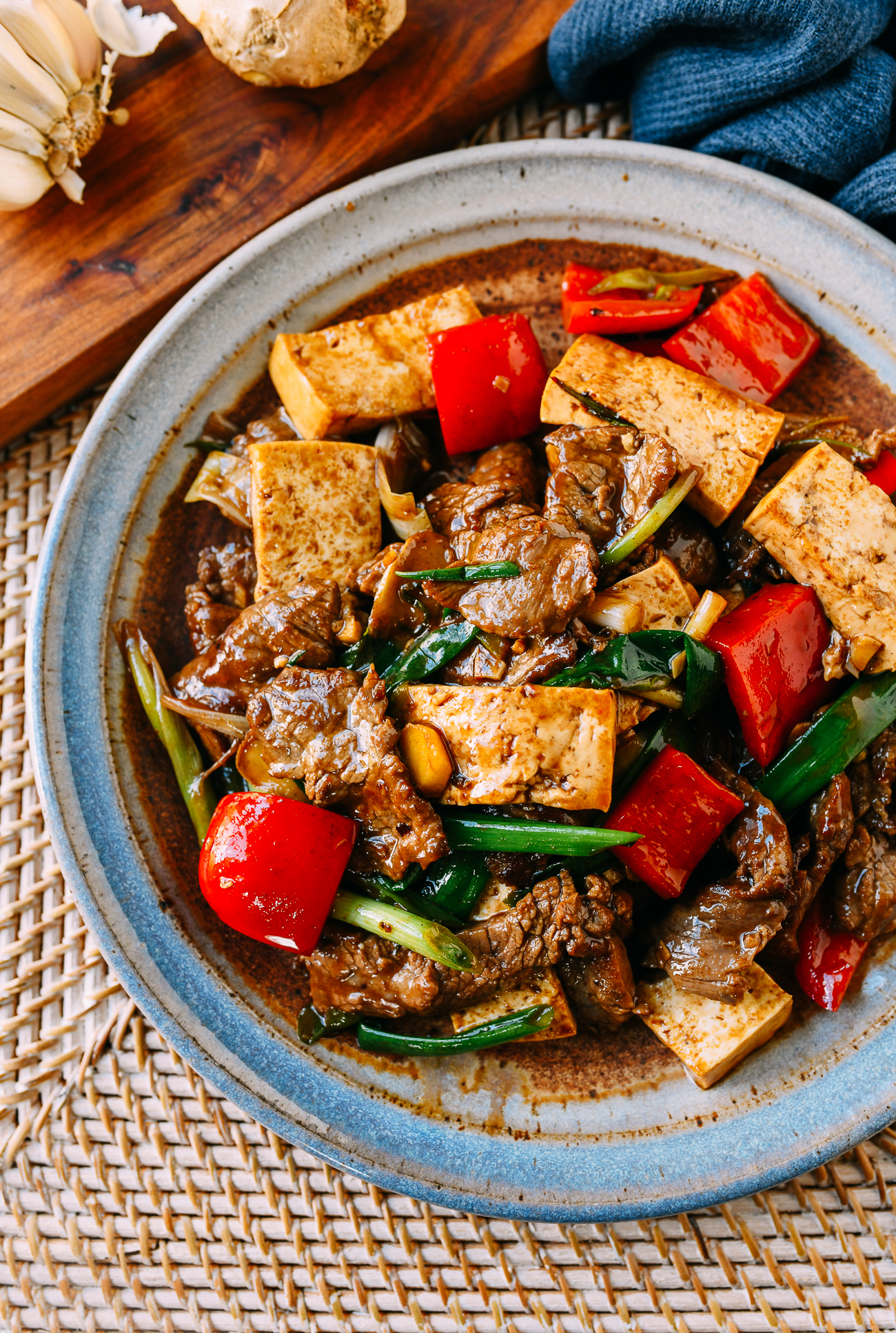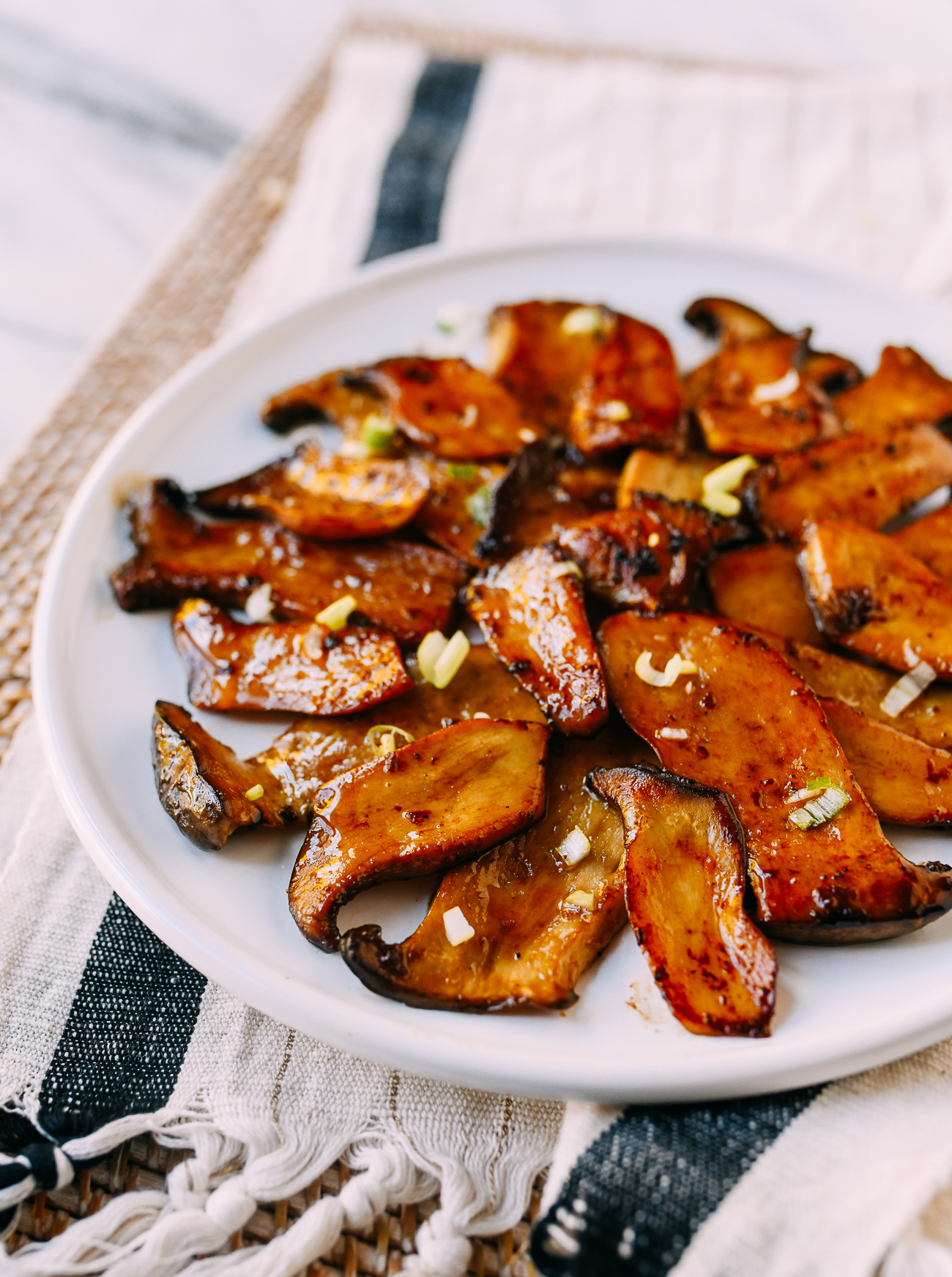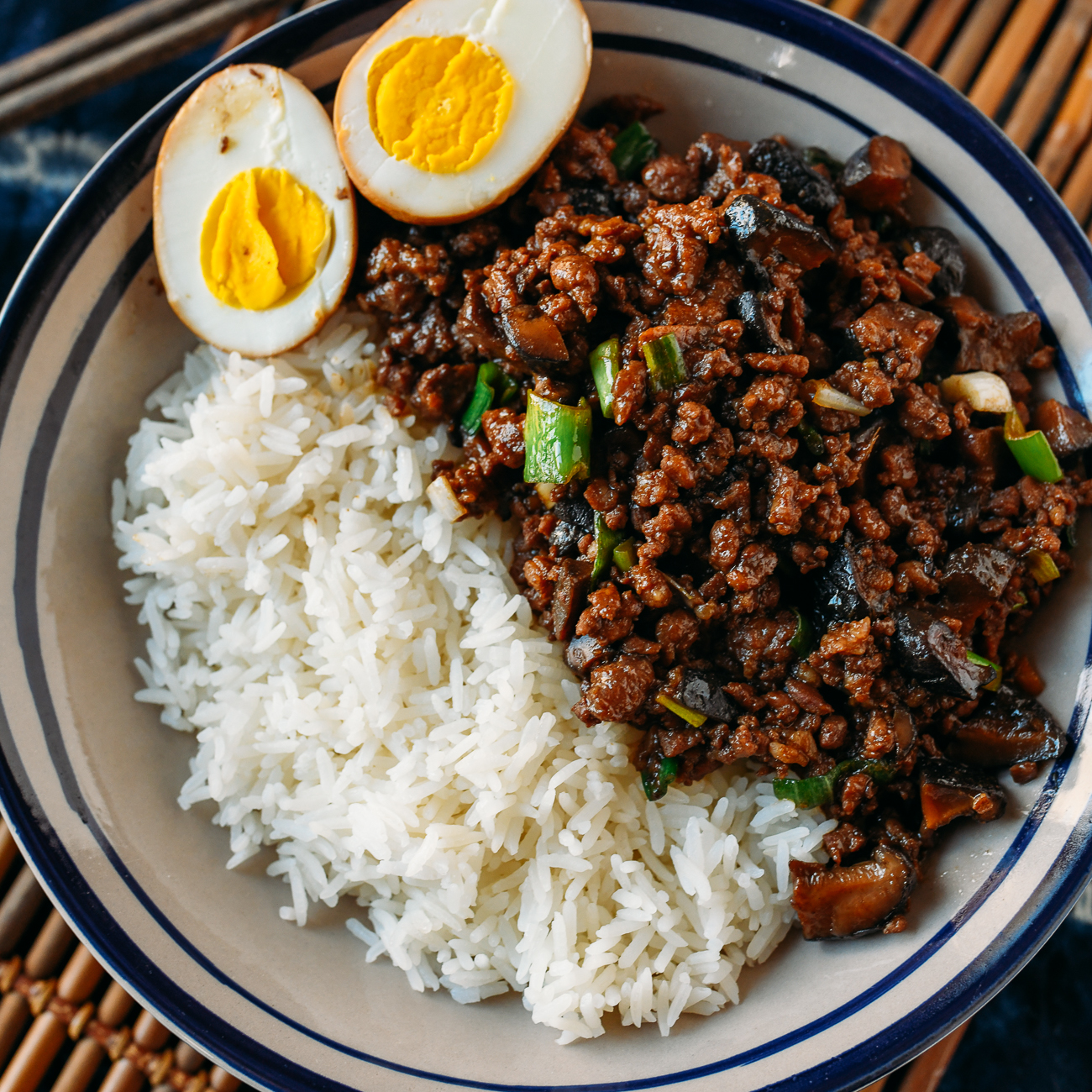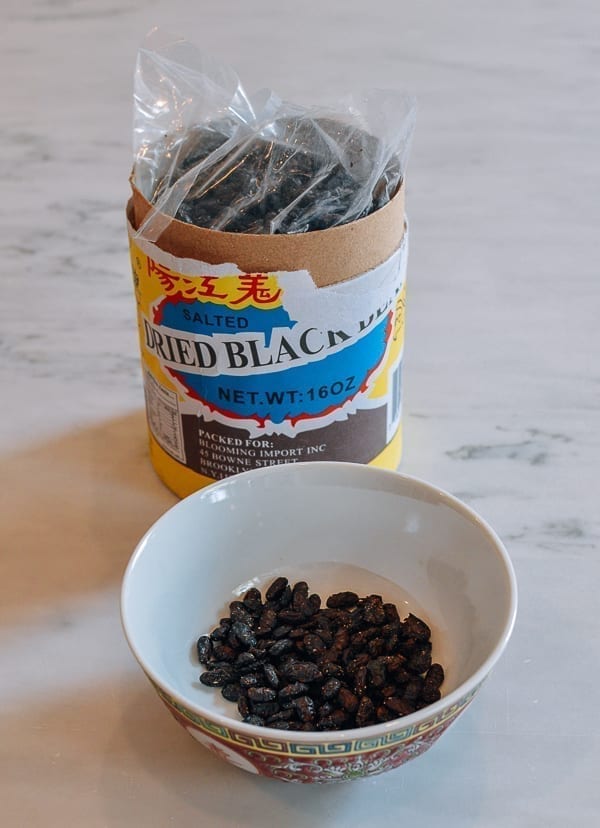
Fermented black beans or Douchi (豆豉) in Mandarin, also called salted black beans, fermented black soybeans, preserved black beans, or just black beans, are used in a variety of Chinese dishes across regional cuisines. We’ll tell you everything you need to know about fermented black beans in this quick article.
What are Fermented Black Beans?
Fermented black beans (dòu chǐ in Mandarin or dau6si6 in Cantonese, 豆豉) are made from black soybeans that have been fermented with salt. The result is not a sauce or paste, like many of the fermented bean pastes we’ve also covered in our glossary (those pastes are also usually made with yellow soybeans, not black), but individual salted beans that are slightly soft in texture, mostly dry, and still in a light coating of salt.
This ingredient pre-dates soy sauce and has been part of Chinese cuisine for over 2000 years (marked containers were found in an ancient tomb in Hunan province, dated to 165 BC). Douchi simply adds a salty umami flavor to dishes that diners can’t resist!
While many refer to them simply as “black beans,” don’t confuse these fermented black beans with the regular black beans that come in cans or dried in bags. Those are the beans you might use to make rice and beans or a big pot of feijoada. These black beans are black soybeans that have been salted and fermented. You cannot use canned regular black beans or dried black beans as a substitute!
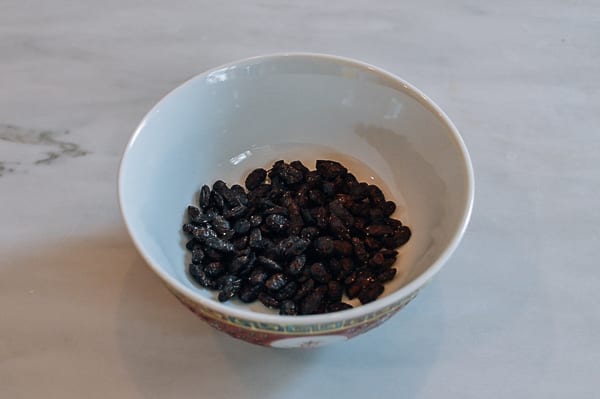
What Do Fermented Black Beans Taste Like?
These black beans are salty, savory, and some say slightly bitter. They have a slight funk that we associate with fermented soybean pastes and sauces. That funk mellows out when you use them in cooked dishes. The end result is an incredible umami (which is a Japanese term for a “savory” taste).
Note that the longer you cook them, the softer they get. Depending on the texture you’re going for, you can cook them for less or more time. You may, for instance, want them to stay more whole, while more of an al dente “bite.” Or you may want them to melt into a dish.
You can see in the photos of the dishes featuring fermented black beans below that some feature beans that have melted into the sauce more (like the Beef with Bitter Melon). In other dishes, the beans are cooked, but have stayed more whole (like in the Dim Sum Steamed Spare Ribs).
How To Use Douchi
Black beans are used to make sauces in stir-fries (like the sauce in our Beef with Bitter Melon) and to flavor steamed dishes (like dim sum steamed spare ribs). They’re often paired with other strong ingredients that can stand up to their flavor, including garlic, chilies, and ginger.
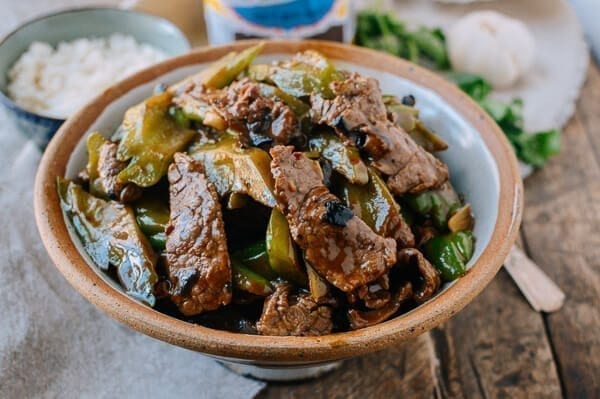
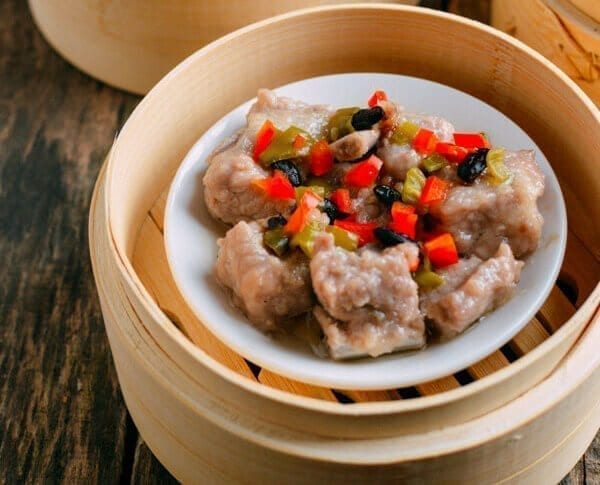
They are also often paired with seafood, such as clams or periwinkle snails.

They’re used quite often in Cantonese cuisine in particular, as well Sichuan cuisine (some versions of Mapo Tofu include fermented black beans, for example, like our Vegan Mapo Tofu. You may also find fermented black beans in some versions of Sichuan Twice Cooked Pork).
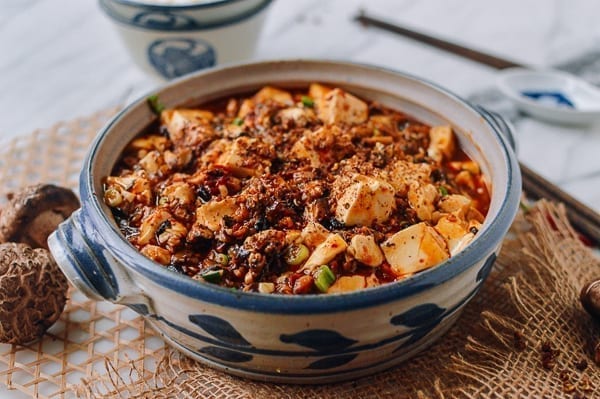
Hunan dishes also feature them, like our Hunan Pork & Tofu. They are also a key ingredient in one of our favorite chili sauce condiments, Lao Gan Ma Chili Oil with Black Beans, offering a savory, salty bite to the sauce.
Before use, they can be rinsed a couple times in water to clean them and remove excess salt. However, this is not strictly necessary, and some say that you can lose flavor and pungency by rinsing them. If you decide not to rinse before using, take note of their saltiness. Then adjust the amounts of any other salty ingredients (salt, soy sauce, oyster sauce, etc.) accordingly.
Buying & Storing
Fermented black beans are incredibly affordable. They might offer the biggest flavor punch for the price of any condiment in the Chinese market. A one-pound (450g) package costs around $2. We have been using the brand pictured below for a long time and are quite happy with it.
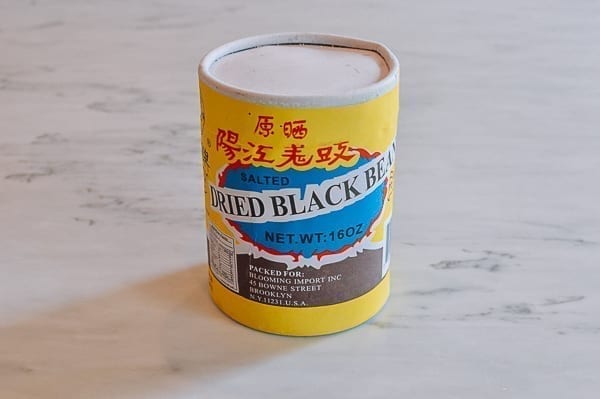
For those of you stranded in a no-Asian-grocery zone, however, our search on Amazon yielded some decent results, though they can be more expensive than what you’d find in an Asian grocery store.
We have also used this variety below, which has some added ginger flavor.
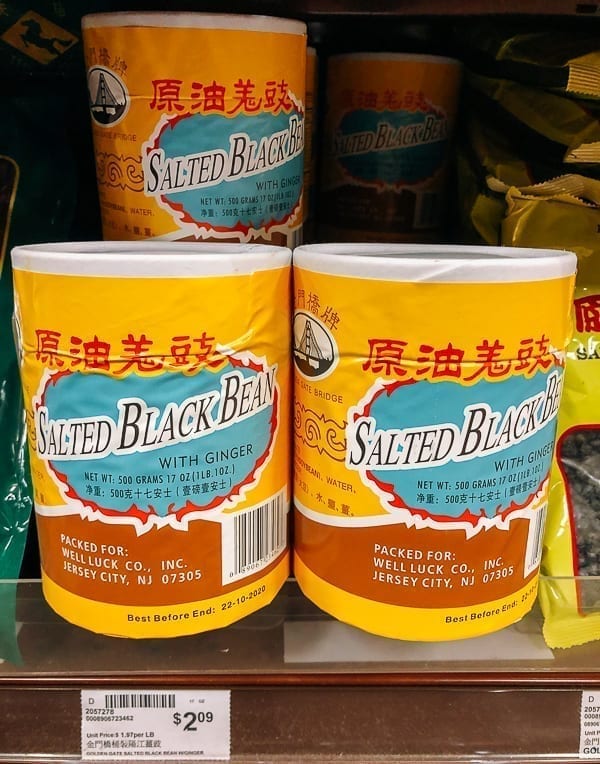
In addition to cardboard canisters pictured above, they also come in plastic bags.
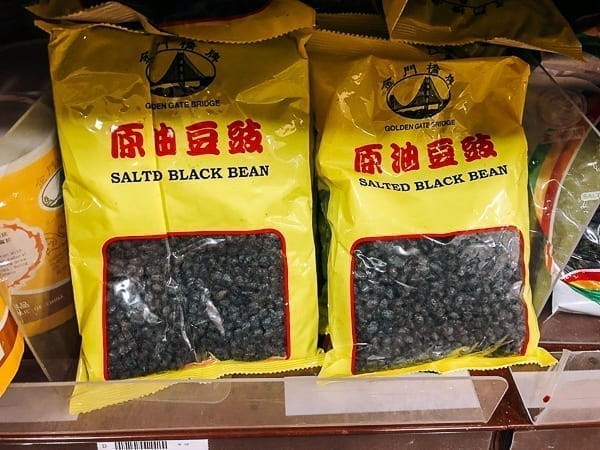
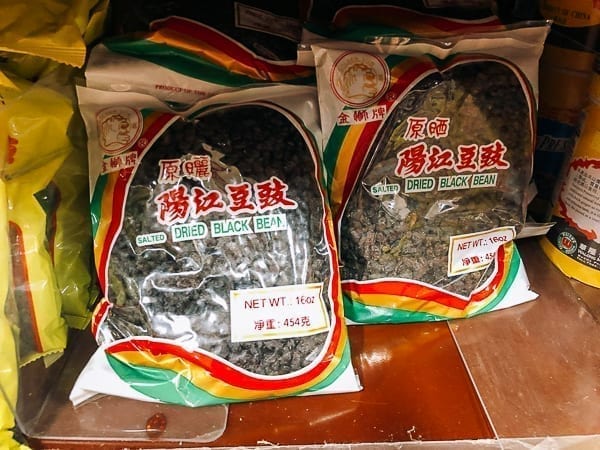
If you want black beans that have only been salted, without added ginger flavor, make sure to read labels carefully. As you can see, ginger is mentioned in the ingredients list on the bag below:
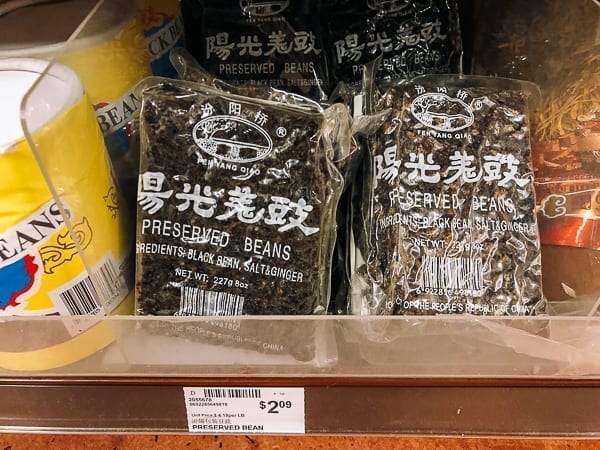
Store them in an airtight container in your refrigerator and they’ll keep for years. While we do usually clean out our supply before too long, we’ve never had a can of these go bad on us!
Substitutions for Fermented Black Beans
If you can’t find black beans, you can substitute a pre-made black bean sauce, which may be easier to find in mainstream grocery stores.
Our Favorite Recipes That Use This Ingredient
- Tofu with Black Bean Sauce
- Clams in Black Bean Sauce
- Chicken with Black Beans
- Dim Sum Steamed Spareribs
- Spicy Black Bean Twice Cooked Potatoes
- Beef with Bitter Melon
- Dim Sum Stuffed Peppers
If you have further questions about fermented black beans, let us know in the comments. We try to answer every single one!









